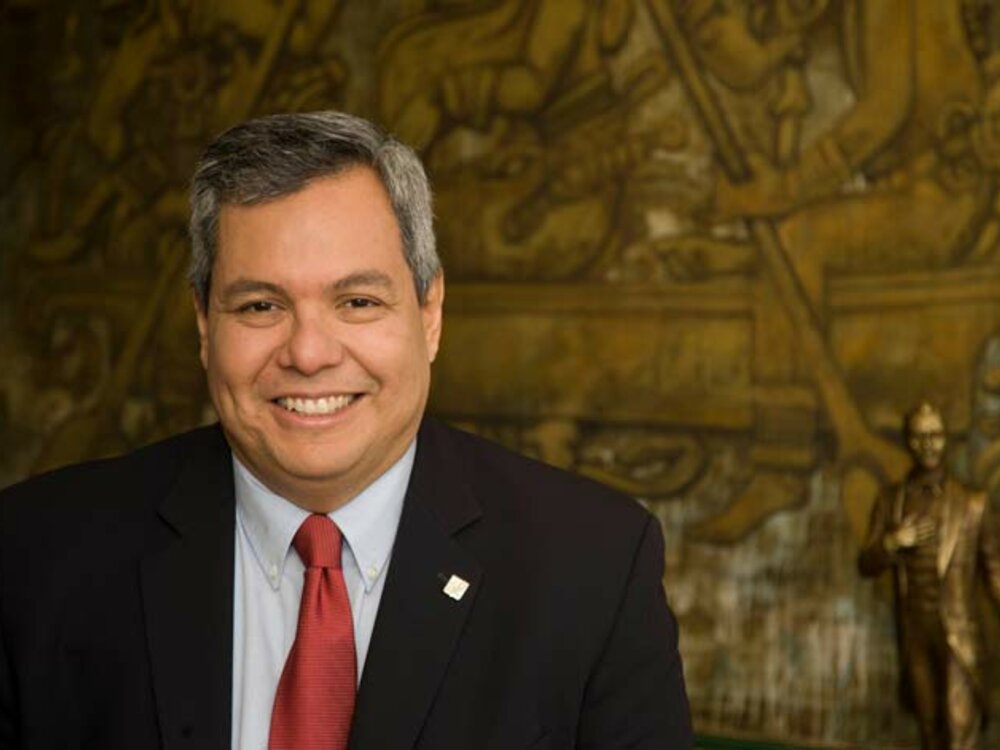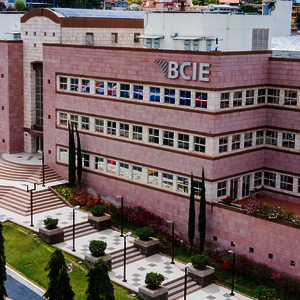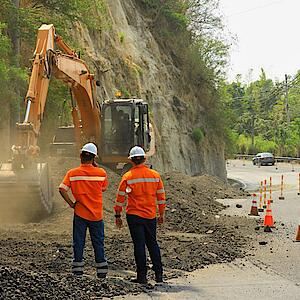CABEI financing enables reduction in transportation times at borders; before 11 hours, now 6 minutes

Trade between Guatemala and Honduras has increased from US$906.3 million in 2017 to US$970.6 million in 2018, representing a 7.1 percent increase.
Tegucigalpa, June 6, 2019.- With the aim of modernizing border crossings and reducing transportation times in the area, the Central American Bank for Economic Integration (CABEI) reaffirmed its commitment to regional development by means of its work carried out to streamline the Customs Union process.
CABEI Executive President, Dr. Dante Mossi, highlighted the Bank's participation in this process, which promotes the streamlining of the physical integration of the region's countries with a vision of fostering the economic and social development of all the countries of the Isthmus and seeking a united and developed region.
He recalled that, "In 2016, the Bank granted US$1.5 million in non-reimbursable technical cooperation to finance the Program denominated, "Support to the Process of Deep Integration towards the Free Transit of People and Goods between Guatemala and Honduras," which has been extremely successful.
Reducing transportation times and increasing trade
Dr. Mossi explained about the importance of reducing border crossings times from 11 hours to an average of 6 minutes at the facilitation centers.
Another noteworthy result of this integration process involves an increase in bilateral trade between Guatemala and Honduras, which grew from US$906.3 million in 2017 to US$970.6 million in 2018; this represents a 7.1 percent increase.
Regarding infrastructure modernization, physical renovations were carried out at the three integrated border posts of El Corinto, Florido and Agua Caliente in order to establish control and facilitation centers at each post.
Dr. Mossi also highlighted the physical adequacy of 10 peripheral posts between Honduras and Guatemala, in addition to the provision of computer equipment, servers and network devices for the three intra-frontier posts, among other achievements.
At the beginning of this year, El Salvador requested its incorporation into the process. To promote this initiative, CABEI granted additional non-reimbursable technical cooperation for an amount of US$750 million. This new stage in the process is expected to boost the Salvadoran economy, as well as to generate development opportunities for citizens and businesses.
Other important improvements include renovations at control centers and four intra-border posts; technical assistance for IT development of border authorities; provision of IT equipment; and training for the public and private sector on the progress made at the borders.
The incorporation of El Salvador into the process is expected to lead to a GDP increase between 0.5 percent and 1.2 percent, as a result of trade efficiency and facilitation in custom processes. Likewise, the institutions participating in the Guatemala-Honduras-El Salvador Customs Union process will be properly interconnected and equipped with cutting edge technology in order to implement proper control.




![[Translate to English:] [Translate to English:]](/fileadmin/_processed_/e/3/csm_WhatsApp_Image_2024-04-18_at_2.12.23_PM__2__590ef43ade.jpeg)

